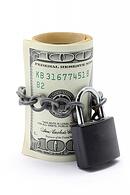Car insurance is a financial agreement between you and the insurer, much like how your car loan is an agreement between you and your lender. Insurance companies look beyond your driving record and the kind of car being insured, and your credit score could be taken into consideration. Before purchasing insurance, understand how your credit score is affecting your auto insurance rates.
Likelihood of Payment
The most important thing your credit rating tells an auto insurance provider is the likelihood that you will keep up with premium and deductible payments. A lower credit rating gives the impression that you have a history of missing a lot of payments or making other poor financial decisions. Higher credit ratings are indicative of responsible financial management and a higher likelihood of ongoing payments.
Risk to the Insurer
The reason an auto insurer wants to assess your credit rating and the likelihood of payment goes back to the risk an insurance company takes on by insuring a vehicle. A driver seen as high risk by an insurance company will need to pay higher rates to justify the risk taken by the insurer. Bad driving records and cars statistically involved in more accidents increase the risk, as does a low credit rating. If an insurer sees a bad credit history, they need to make the assumption that previous bad payment habits could continue.
Higher or Lower Premiums
Your credit rating is going to directly affect your car insurance premiums. Someone with a great credit score will pay a lower car insurance premium than someone with a low credit score. Many auto insurers consider driving records, demographics and credit ratings equally when calculating the premiums you need to pay for different levels of insurace coverage. Comparison shopping for the best competitive price is important because every auto insurance provider uses a slightly different formula for arriving at premium rates.
Over time, you can work on improving your credit score and gradually lower the car insurance premiums you pay. This benefit of striving for a better credit rating is often overlooked by consumers, but it can save you hundreds or even thousands of dollars every year. The money you save will make it easier to keep up with bills and give you the financial stability needed to keep improving your credit.
Your credit rating affects several areas of your life, including how much you pay for your auto insurance. Check your credit reports and make steps toward improving your score, and you could start saving money on your car insurance.
* Image courtesy of freedigitalphotos.net




